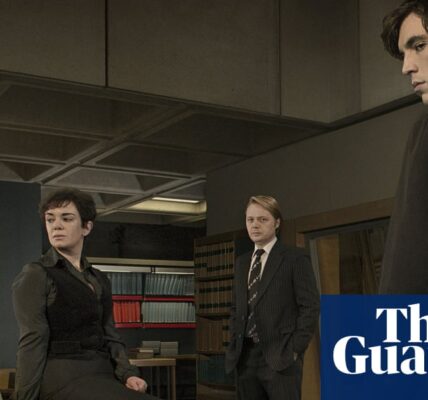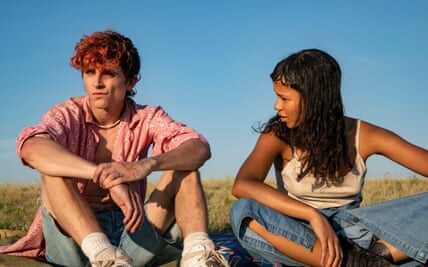The UK private school system is being satirized in a comedic way by a Black teenager who finds racism to be amusing.
T
As you approach the school entrance, the first thing that catches your eye are the tall turrets. These turrets are sharp and imposing, giving the impression that they could easily harm any unsuspecting bird that passes by. The sprawling grounds, illuminated by the afternoon sun, are a vibrant emerald color and meticulously manicured with stripes for playing cricket. The school itself resembles a grand palace fit for royalty, with a combination of a church and a castle, complete with stained glass windows and sturdy stone walls. However, it is also the setting for a new BBC comedy titled “Boarders,” which follows the journey of five Black teenagers from inner-city London who receive scholarships to attend the prestigious St Gilberts boarding school. The show delves into the challenges and mischief that these students encounter in this new environment.
The creator of the show, Daniel Lawrence Taylor, did not come up with the idea out of thin air. He had read an article from 2013 about five Black boys from east London who were given the opportunity to attend a prestigious private boarding school through a social outreach program. Taylor found this concept to be perfect for a comedy. He reached out to the boys and learned that they had a positive experience. This reminded him of his own time at university, when he had transitioned from living in Lewisham to the wealthy campus of Royal Holloway, University of London. As a Black TV writer in a predominantly white industry, Taylor also reflected on the challenges of being in a white institution. He explains, “When Black people are in white institutions, we handle it in various ways.” With this in mind, he wanted to explore how his characters would navigate these environments. Some may try to fit in, while others may reject it. And some may even use it to their advantage.
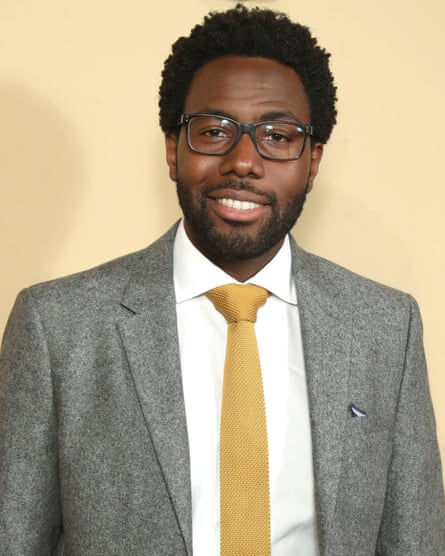
Boarders portrays its characters with a subtle, playful approach, often using clever dialogue to hint at deeper issues. The main characters – Jaheim, Leah, Omar, Femi, and Toby – are constantly facing subtle forms of racism that are not often spoken about. In the first episode, Jaheim boasts to a white classmate that he is related to Stormzy, Skepta, and Giggs. Later, the headteacher asks Leah to refer to him as “master”, but she refuses and points out a painting of an enslaved boy in the school. The headteacher awkwardly acknowledges the mistake in a formal tone.
Taylor now says that although it may sound strange, he finds racism somewhat amusing. Not in a humorous sense, but because the racism in Britain is often absurd and sneaky. He believes that sometimes, when faced with such experiences, laughing is the only way to move forward. He also feels that it is a necessary survival tactic in Britain, especially in the industry. He finds it entertaining to share stories of racist encounters at a party later in the evening and sees it as a form of defense mechanism in order to cope with the challenges.
He mentions two shows, I May Destroy You by Michaela Coel and Atlanta by Donald Glover, as examples of shows that are both hilarious and thought-provoking about institutional racism. He expresses admiration for seeing Black characters overcome adversity, regardless of the outcome. He explains that he prefers watching characters who handle racism in a strong and resilient manner, rather than in a dramatic and heavy way. He believes that this resilience is inherent in the Black community and is showcased well in these shows.
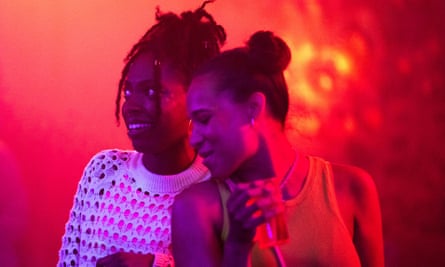
Taylor enjoys taking his characters from one setting and putting them into another. In his show Timewasters from 2017, a jazz group from South London gets stuck in the 1920s and 1950s after using a broken elevator in their rundown apartment building. The characters experience overt racism (with white people shouting in the streets), while in Boarders, which takes place in modern times, there is more subtle discrimination that Taylor finds intriguing. He explains that institutional racism is often unintentional but still exists due to entrenched systems and those in positions of power not wanting to change them. This leads to conflicts and creates entertaining television.
It is unusual to witness the filming of a TV show in a real location, as it blurs the line between reality and fiction. This concept is well-executed in Taylor’s Boarders, a fictional comedy with elements of truth. It can be difficult for the untrained eye to distinguish between the authentic oil paintings displayed in the school corridors and the ones created specifically for the show (such as the artwork featuring an enslaved boy). All of the paintings depict white men with confident postures, adorned in wigs and robes, without a single Black face in sight. Meanwhile, the library is a grand display of towering bookshelves filled with dusty books, illuminated by colorful stained glass windows, a far cry from the plain grey rooms of an average inner-city state school. The stark contrast between class and race is evident to anyone who looks. “Even when I first visited, I couldn’t help but notice all the white faces on the walls. It’s not easy for Black people to step into this environment and feel comfortable,” explains Taylor.
The cast found it easy to portray the experience of living in predominantly white environments. Tedeku, who portrays our protagonist Jaheim, a talented but conflicted young man caught between his rough Lewisham friends and his more introspective side, grew up in London but was then sent to a school in Hertfordshire at a young age. “Attending schools with mostly white students is a completely different experience,” he explains. “When I read the script, I saw the importance of telling this story. Jaheim’s struggles resonated with me. Throughout the story, you see him constantly adapting and it’s unclear where he will end up.”
Tedeku is correct. It is often uncertain where the characters will end up – whether they will act impulsively or wisely, respond in desired ways or expected ways. In one particularly brutal and terrifying moment, we witness Jaheim being brutally attacked by a group of entitled wealthy boys, who are confident they will face no consequences. Later, Jaheim seeks revenge and reduces the leader to tears. It is a disturbingly satisfying scene, fulfilling an immediate desire. However, it also raises questions about the methods of resistance against oppressive forces: is it more effective to remain unnoticed and manipulate the system for one’s benefit? Or does violence become necessary when all other options fail?
Bypass the advertising for the newsletter.
after newsletter promotion
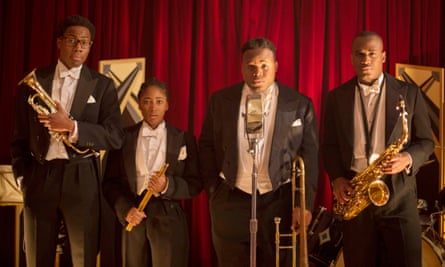
Display the image in full screen mode.
For Campbell, who portrays the clever and astute character Leah, she found a warm and endearing quality in Leah that made her easy to root for. In the show’s second episode, Leah shows her compassion by helping another Black girl with her hair, despite initially being ignored by the girl. This aspect of the script resonated with Campbell, much like it did with Tedeku. Campbell explains, “Leah is placed in a situation where she feels like an outsider due to her identity as a young Black woman. This is something I am all too familiar with, whether it be in school, the workplace, or even among friends. The overall theme of Boarders is relatable to many as most people have experienced feeling like they don’t belong at some point in their lives.”
Taylor emphasizes that Boarders can be relatable to anyone who has ever felt like they didn’t fit in. He makes it clear that the show is a comedy, not a deep exploration of the impact of white colonialism. However, these two concepts can peacefully coexist in Boarders. The show is not solely focused on race; it also delves into themes of adolescence, partying, love, resilience, and coming of age. It’s about pushing through despite facing obstacles.
“Racism can be like any type of trauma that you go through. This is a show about Black trauma in white institutions – but people go through trauma related to sex or sexuality; we’ve all got our traumas,” Taylor says. “I don’t even like using the word ‘trauma’, it’s such a heavy word, isn’t it? But you also don’t want to shy away from it.”
Taylor’s approach to Boarders involves utilizing existing elements and extracting the uncomfortable aspects from actual experiences. However, this is done with a playful and mischievous attitude. The goal is to take a step back and reflect on the absurdity of the situation.
th February
The show “Boarders” will be available to watch on BBC iPlayer and BBC Three starting on February 20th. February.
Source: theguardian.com
